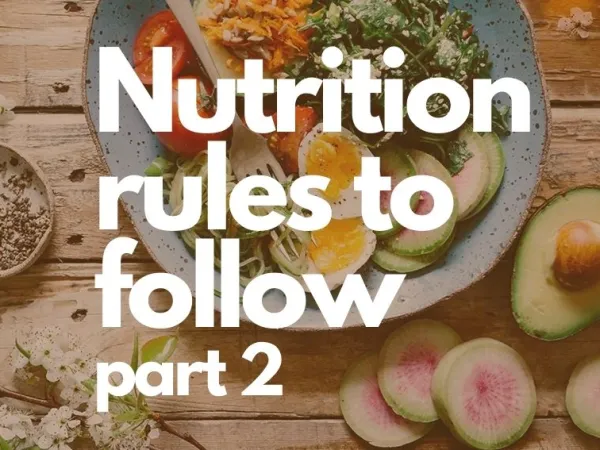What do you mean working out every day is not a good idea? You mean to tell me that I can get to my goals while doing less work? Yes, less work but higher intensity. Working out 4-5 times a week can be more beneficial, in order for that to be true your intensity needs to be high. It’s not as easy as just saying it, there is actually some science and thought behind the statement of high intensity. To give you my full reasoning and thoughts about this I will have to explain this a little bit more in a second.
First, remember that we’re talking about the majority of the people here, I am not talking about the 0,01%, also known as professional athletes or people alike. I am not talking about people who think they’re progressing by working out 7 days a week but actually aren’t. I am also not talking about people who add what we call ”active recovery” sessions into their training once or twice a week. I am talking sweaty, hard grind, muscle soreness type workout sessions.
I am not saying that you shouldn’t work out every single day, I am just trying to point out the flaws in the thought of: more work is always better. This blog is focused on telling you about why it might not be the best idea to workout 7 days a week and why. There’re exceptions to this, some of which I have already talked about (professional athletes, active recovery sessions) and some I will cover at the end of this blog.
If you look back a couple sentences a go, you will read this: ”I am not talking about people who think they’re progressing by working out 7 days a week but actually aren’t”. It’s so easy to fall into the trap of thinking that more work is always better, even professional athletes will tell you that they experience this to not always be truthful. Even with the best nutrition possible, all the recovery tools, a lot of sleep at night and being able to soley focus on performance. These professional athletes don’t workout hard every single day (recovery sessions aside). If they don’t, with all of the tools accessible to them, do you think it’s the best thing for you to do?
The impact of recovery
Recovery, the most important part and deciding factor in whether we’re improving or not. You might have read some of my other blogs where I talk about the ”super compensation” model. The super compensation model shows us that our body and muscles get damaged while we’re working out and we need recovery to adapt, grow and get stronger over time.

Without the proper amount of time to recover, our super compensation line will continue to decrease slowly but surely. This is why people who coach professional athletes need to be so good at doing their job. They need to be able to program the training sessions in such a way that optimal super compensation gets reached and the next training session takes place at that point. Not taking the time to recover enough will only lead to a continuous decrease in fitness/performance, while waiting too long will lead to less than optimal super compensation, flat-lining or decrease of fitness as well.
Recovery is not just about the length of time, it involves things like nutrition, quality of sleep and managing stress as well. There are a lot of different factors that can and will impact the quality and speed of your recovery. Most of our recovery gets done while we’re sleeping, so obviously the less sleep you get the worse your recovery is going to be. The same thing goes for our nutrition, muscles need protein and amino acids to recover properly, if we don’t eat enough, our recovery will definitely show it. It’s the same thing with stress levels, activity levels outside the gym, quality of living, alcohol consumption etc.
Recovery is the most important aspect to focus on if you’re looking to increase your fitness. In turn, it’s also the number 1 reason why working out every day might not be the right choice for you, since your body doesn’t get that time to recover.
The lack of Enthusiasm/motivation

We as coaches and/ or gym owners see it all the time, someone who gets really, really into fitness and think it’s the best thing ever until…. they do it too much or take it too seriously. Too much of anything is obviously not ideal for long-term happiness and sustainability, it’s no different for fitness. Obviously, we shouldn’t just give up when we don’t feel like working out every once in a while, because that’s a part of the journey, but we have to understand and know when we truly don’t enjoy something. If you don’t enjoy one form of fitness, you’re in luck because there are 1000’s of different ways to get in shape now a days. Find something you enjoy, while maintaining the level of intensity necessary for progress. Yes, in order to progress you need to be serious and dedicate yourself, but there’s a line that you can cross. Like I said, we see that all the time.
Most people who stop going to the gym just really don’t enjoy it, especially when you don’t gain results as fast as you thought. If you enjoy it you will stick with it, regardless of what progress you gain. This leads to a vicious cycle, enjoyment makes our dedication level rise, with dedication comes a level of intensity and commitment. Over time that can lead you to wherever you want to go or whatever you want to do.
I am a firm believer in doing what you find enjoyable and fun because that will make you stick with something. We have to keep in mind that when it comes to fitness and progression, fun includes hard work and intensity. Not every workout (probably the majority) is going to be fun or pleasant, but those are necessary to get fit. Intensity is directly connected to results, if there’s no intensity I can guarantee you there won’t be any lasting results.
The mixture of fun, intensity and dedication are a dangerous combination (in a good way) when it comes to fitness gain and longevity. Without fun there’s no longevity, without intensity there’s no result, without dedication there are no lasting results. But all 3 of those components + recovery makes for some killer results and progress.
The exception to the rule
I have mentioned some already. Professional athletes and people who add in ”active recovery sessions”, but there are more. Just like everything else, no one person and nobody is the same, whatever works for me might not work for you. If 3 days on-1 day off, 2 days on-1 day off works for me(that’s my training schedule) it doesn’t mean it works well for you. I definitely do better with at least one full rest day a week (more mobility and stretching on that day) but that might not be the case for someone else. If your body can function properly and keep up high intensity 7 days a week, who am I to tell you not to do that. But that’s a question you have to ask yourself. Are you truly capable of keeping up the intensity? As I explained before, intensity is THE driving force behind results and progress. You have to be honest with yourself when answering that question. Another exception is; people who do a wide variety of physical activities. If you run long distances on Monday, Wednesday and Friday, workout in the gym on Tuesday and Saturday, rock climb and yoga on Thursday and Sunday, you might be able to keep up intensity because of the variety in movements and recovery requirements.


different ways of working out
6 nutrition rules to follow, part 2
Welcome back to part 2 of this series, nutrition rules to follow. Really what this blog should be called is nutrition rules that you COULD follow. There’s already enough people out there that will tell you exactly what you should be doing and how to do it. Instead, I just want to give you the…
6 Nutrition rules to follow, part 1
Welcome back to another blog where we cover the wide topic of nutrition. The reason why I keep coming back to different topics related to nutrition is because the nutrition space is filled with false and misleading information. My goal is to simplify the message and give you honest information. I never want to tell…
5 Steps to getting stronger
Welcome back to this week’s blog where we cover a topic that I am super passionate about and that is getting stronger. Why am I so passionate about it? Because it has never come easy to me. Even since the start of my fitness journey I have always looked at other people in the gym…






Leave a comment